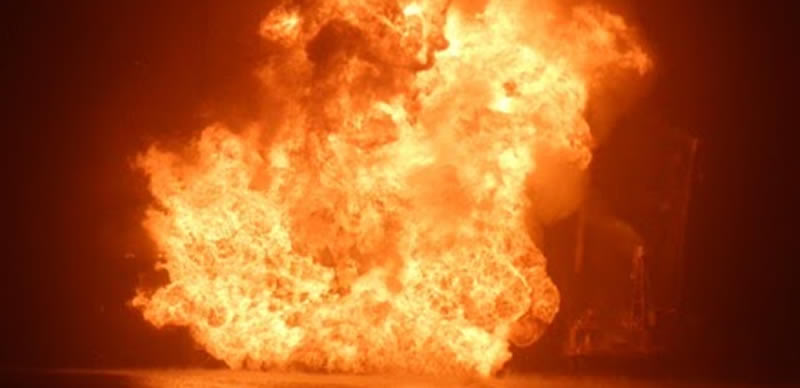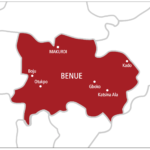The persistent menace of bush burning in Benue State has become a cause for concern, especially among rural residents who are often grappling with devastating losses every dry season.
For most residents, the dry season in the state, a time for harvesting and preparing for the next planting cycle, has instead become a period of fear and devastation due to bush burning which is now an annual nightmare.
Our correspondent reports that bush burning, often carried out by hunters, herders, or even careless farmers, has become a recurring nightmare for rural communities in Benue despite concerns of stakeholders about the practice.
Earlier in this year, an 80-year-old woman was burnt to death in a fire incident occasioned by bush burning, which also reportedly razed 50 houses in Tse-Agubor Gyaruwa of Tsambee-Mbesev Council Ward in Gwer West LGA of the state.
- Economic challenge has pushed 130m people into poverty – SMEDAN
- FG lifts ban, to post corps members to banks, others
The fire, according to the son of the deceased woman who is also the village Head, Chief Ayatse Agubor, started at about 10am when the villagers were already at their various farms.
He told journalists that his octogenarian mother who was killed in the fire could not get anyone to help her out of the sick bed as the people were in the farm making efforts to stop the fire from affecting their harvested produce.
Agubor had attributed the fire to unauthorised bush burning even as he warned youths of the community to desist from the act or face the wrath of the law.
One of the villagers, Hajia Kongo, who lost over 10 bags of maize, soybeans, clothes and other household items including N110,000 cash she had hidden in the bags of corn, lamented the level of destruction caused to her house by the fire.
In Gwer West, a similar incident has rendered displaced people taking shelter in neighbouring places even more helpless as they lost their makeshift homes to the bush burning.
A former Agagbe IDP camp manager, Ibaah Jacob, told our correspondent that the issue of bush burning was not to be taken lightly especially during this period – November – when harmattan sets in with the dry season at its peak.
Jacob wants the government at all levels to make greater commitment to ending bush burning in order to save lives, property and the environment, and taking into cognisance past incidents ignited by bush burning such as the petroleum tanker explosion at Agudo community in Tarka LGA of the state.
It was reported that the affected tanker was on its way to Gboko from Makurdi axis when it attempted to manoeuvre past a burning bush along the highway but unfortunately exploded into flames during which two people were injured and seven houses burnt.
Victor Ormin, the Chairman of Gwer West LGA, also disclosed in a phone conversation with our correspondent in Makurdi, “This issue has persisted here. We are currently engaging with our community to raise awareness about the gradual impacts of bush burning on the ecosystem, climate, farms and homes.
“We are talking to our local populace about bush burning. Due to insecurity, most of our people are gathered in Naka and Agagbe, the two headquarters of the LG. We are doing sensitisation to discourage them from bush burning because it has adverse effects on crops and homes,” Ormin added.
The Director of Benue State Fire Service, Engr. Donald Ikyaaza, noted that beyond the tragic loss of lives, the practice of bush burning wreaks havoc on the environment, leaving behind scorched earth, polluted air and barren fields.
“We have been sensitising people to stop indiscriminate bush burning especially during this period. We don’t have data on cases of bush burning but we continue to let residents know that bush burning is harmful,” Ikyaaza said.
Other environmental experts also warned that bush burning poses a multifaceted threat.
The Executive Director of Environment and Climate Change Amelioration Initiative (ECCAI), Victoria Esa, explained that apart from destroying property and farmland, bush burning contributes to climate change by releasing significant amounts of carbon into the atmosphere.
She said for regions like Benue, already grappling with erratic rainfall and desertification, the consequences are dire.
“We are doing a lot of sensitisation in this area to curb the menace, we usually advise them to create firebreaks around their farms and homes to prevent fires from spreading from neighbouring farms onto their property,” Esa said.
An environmentalist, Pius Elijah said the long-term impact of bush burning is that it strips the soil of its nutrients, making it harder for farmers to grow crops and over time, this leads to food shortages and poverty, creating a vicious cycle of suffering.
However, in response to the growing menace, some communities have taken proactive steps. Youth groups and local councils are organising campaigns in collaboration with environmental organisations to educate villagers about the dangers of bush burning.
“When people understand the damage caused by bush burning, they are more likely to seek alternative methods for clearing land or hunting,” Terkimbi Vincent, an environmental advocate said.
In the same vein, as part of the International Day for Disaster Risk Reduction (IDDRR) celebration, ELIM Christian Vocational Training Centre recently harped on the need to prohibit illicit bush burning in the state.
The organisation, which conducted an awareness campaign in Konshisha LGA of the state, advocated punishment to curb bush burning while noting the importance of proper sanitation practices and effective drainage systems in preventing erosion.
The Project Coordinator, Rachel Achimba, represented by the community organiser of Elim Vocational Training Centre in Konshisha LGA, Samuel Nyikyaa, maintained that the campaign will help educate various communities on the dangers associated with bush burning, flooding, erosion and deforestation amongst other climate change related disasters.
Meanwhile, as the state braces for yet another dry season, the scars of past fires remain a painful reminder of what would be the result as environmental experts call to action, a plea for stronger laws, better enforcement and a collective commitment to ending the cycle of destruction.

 Join Daily Trust WhatsApp Community For Quick Access To News and Happenings Around You.
Join Daily Trust WhatsApp Community For Quick Access To News and Happenings Around You.


